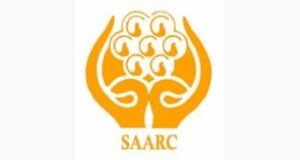
On January 18, 2018, the government had banned the export of raw jute for an indefinite period to encourage the use of jute-made products in the country. It lifted the ban through a circular issued on May 29 last.On November 3, 2015, the government imposed a similar ban for a month. It, however, extended the ban for an indefinite period later.
The ban was lifted on April 3, 2016 clearing the way for jute export.
According to the Export Promotion Bureau (EPB), 1,379,290 bales of raw jute worth Tk 1,294.65 crore were exported in 2017-18 fiscal year. The export volume was Tk 1,187.53 crore in 2016-17 financial year.
In 11 months of the last fiscal year till May, raw jute worth Tk 770.91 crore was exported to different countries.
According to Bangladesh Jute Association (BJA), Bangladesh exports raw jute to 28-30 countries, including India, Pakistan, China, Brazil, Ivory Coast, Vietnam, Korea, Russia, Nepal, Cuba, Germany, the United States and the United Kingdom.
Of them, Pakistan, India and China hold a large chunk of the export volume.Exporters and traders fear that they will face huge losses if the government suddenly takes any decision to ban the jute export again after collecting jute.
They said jure prices fall sharply once the ban is imposed on its export which ultimately hurts farmers.
Many traders also have to wind up their business for losses, they said.
Nazrul Islam, Manager of Mondal and Company, Uttara Pat Sangstha, said although the demand for jute has seen a rise in the global market, they are yet to collect raw jute fearing that the government might come up with an export ban again. “We’ll buy jute after observing the situation.”
Bangladesh Jute Association Chairman Syed Ali said the sudden export ban hits the farmers and traders hard. “So, traders will step forward after calculation.”
 Weekly Bangla Mirror | Bangla Mirror, Bangladeshi news in UK, bangla mirror news
Weekly Bangla Mirror | Bangla Mirror, Bangladeshi news in UK, bangla mirror news







